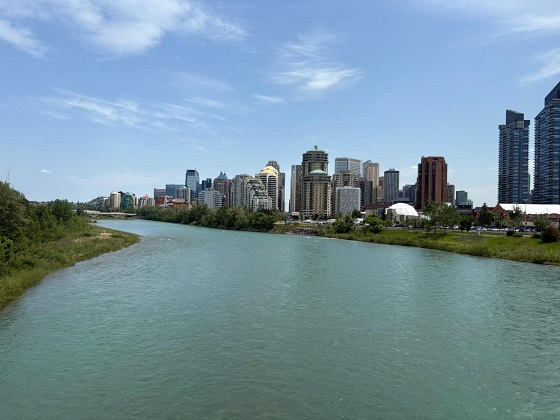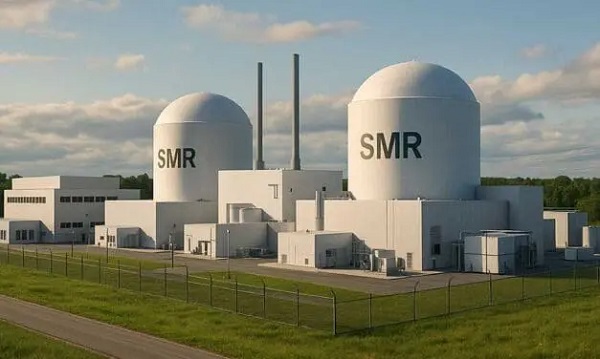Uncategorized
Kim readies for Trump after marathon journey, warm welcome

HANOI, Vietnam — North Korean leader Kim Jong Un spent the eve of his summit with Donald Trump
Trump and Kim are to meet Wednesday in their second summit aimed at addressing perhaps the world’s biggest security challenge: Kim’s pursuit of a nuclear program that stands on the verge of viably threatening targets around the planet.
But before the summit began, Kim took some time to venture out of his locked-down hotel and check out parts of Hanoi, including his nation’s embassy, where a loud cheer went up as he entered the compound.
Soldiers, police and international journalists thronged the streets outside Hanoi’s Melia Hotel where Kim is staying, and hundreds of eager citizens stood behind barricades hoping to see the North Korean leader. As Vietnamese, North Korean and U.S. flags fluttered in a cold drizzle, dozens of cameras flashed and some citizens screamed and used their mobile phones to capture Kim’s rock-star-like arrival.
“I like him,” local resident Van Dang Luu, who works at a nearby bank, said of Kim. “He is very young and he is very interesting. And he is very powerful,” she said. “Trump is not young, but I think he is very powerful.”
Vietnam’s authoritarian leaders set up a huge security apparatus to welcome Kim, shutting long stretches of highway and locking down swaths of the bustling capital city. Earlier in the morning, Kim, grinning broadly and waving, stepped off his
Hours ahead of his border crossing, footage from Japanese TV network TBS showed Kim taking a pre-dawn smoke break at a train station in China, a woman who appeared to be his sister, Kim Yo Jong, holding a crystal ashtray at the ready.
Vietnamese officials have shared few details about the specifics of a summit that the world will be watching closely.
Trump was flying to Hanoi from Washington and was to arrive later Tuesday.
Although many experts are skeptical Kim will give up the nuclear weapons he likely sees as his best guarantee of continued rule, there was a palpable, carnival-like excitement among many in Hanoi as the final preparations were made for the meeting. There were also huge traffic jams in the already congested streets.
Officials in Hanoi said they only had about 10 days to prepare for the summit — much less than the nearly two months Singapore had before the first Trump-Kim meeting last year— but still vowed to provide airtight security for the two leaders.
“Security will be at the maximum level,” Vietnamese Deputy Minister of Foreign Affairs Le Hoai Trung told reporters.
The ultra-tight security will be appreciated by North Korean authorities, who are extremely vigilant about the safety of Kim, the third member of his family to rule the North with absolute power. Kim’s decision to take a train, not a plane, may have been influenced by the better ability to control security.
Vietnam is eager to show off its huge economic and development improvements since the destruction of the Vietnam War, but the country also tolerates no dissent and is able to provide the kind of firm hand not allowed by more democratic potential hosts.
“I really hope to catch a glimpse of Kim Jong Un. He is an interesting man. And he rarely travels anywhere so it would be great to see him here,” said Nguyen Trong Toan, a retired teacher who was waiting by the side of the street on Kim’s expected travel route.
There are high expectations for the Hanoi summit after a vague declaration at the first meeting in June in Singapore that disappointed many.
Trump, via Twitter, has worked to temper those expectations, predicting before leaving for Hanoi a “continuation of the progress” made in Singapore but adding a tantalizing nod to “Denuclearization?” He also said that Kim knows that “without nuclear weapons, his country could fast become one of the great economic powers anywhere in the World.”
North Korea has spent decades, at great political and economic sacrifice, building its nuclear program, and there is widespread skepticism among experts that it will give away that program cheaply.
___
AP journalists Yves Dam Van in Dong Dang, Hyung-jin Kim, Adam Schreck and Hau Dinh in Hanoi, and Kim Tong-hyung in Seoul, South Korea, contributed to this report.
Foster Klug, The Associated Press
Uncategorized
Mortgaging Canada’s energy future — the hidden costs of the Carney-Smith pipeline deal


Much of the commentary on the Carney-Smith pipeline Memorandum of Understanding (MOU) has focused on the question of whether or not the proposed pipeline will ever get built.
That’s an important topic, and one that deserves to be examined — whether, as John Robson, of the indispensable Climate Discussion Nexus, predicted, “opposition from the government of British Columbia and aboriginal groups, and the skittishness of the oil industry about investing in a major project in Canada, will kill [the pipeline] dead.”
But I’m going to ask a different question: Would it even be worth building this pipeline on the terms Ottawa is forcing on Alberta? If you squint, the MOU might look like a victory on paper. Ottawa suspends the oil and gas emissions cap, proposes an exemption from the West Coast tanker ban, and lays the groundwork for the construction of one (though only one) million barrels per day pipeline to tidewater.
But in return, Alberta must agree to jack its industrial carbon tax up from $95 to $130 per tonne at a minimum, while committing to tens of billions in carbon capture, utilization, and storage (CCUS) spending, including the $16.5 billion Pathways Alliance megaproject.
Here’s the part none of the project’s boosters seem to want to mention: those concessions will make the production of Canadian hydrocarbon energy significantly more expensive.
As economist Jack Mintz has explained, the industrial carbon tax hike alone adds more than $5 USD per barrel of Canadian crude to marginal production costs — the costs that matter when companies decide whether to invest in new production. Layer on the CCUS requirements and you get another $1.20–$3 per barrel for mining projects and $3.60–$4.80 for steam-assisted operations.
While roughly 62% of the capital cost of carbon capture is to be covered by taxpayers — another problem with the agreement, I might add — the remainder is covered by the industry, and thus, eventually, consumers.
Total damage: somewhere between $6.40 and $10 US per barrel. Perhaps more.
“Ultimately,” the Fraser Institute explains, “this will widen the competitiveness gap between Alberta and many other jurisdictions, such as the United States,” that don’t hamstring their energy producers in this way. Producers in Texas and Oklahoma, not to mention Saudi Arabia, Venezuela, or Russia, aren’t paying a dime in equivalent carbon taxes or mandatory CCUS bills. They’re not so masochistic.
American refiners won’t pay a “low-carbon premium” for Canadian crude. They’ll just buy cheaper oil or ramp up their own production.
In short, a shiny new pipe is worthless if the extra cost makes barrels of our oil so expensive that no one will want them.
And that doesn’t even touch on the problem for the domestic market, where the higher production cost will be passed onto Canadian consumers in the form of higher gas and diesel prices, home heating costs, and an elevated cost of everyday goods, like groceries.
Either way, Canadians lose.
So, concludes Mintz, “The big problem for a new oil pipeline isn’t getting BC or First Nation acceptance. Rather, it’s smothering the industry’s competitiveness by layering on carbon pricing and decarbonization costs that most competing countries don’t charge.” Meanwhile, lurking underneath this whole discussion is the MOU’s ultimate Achilles’ heel: net-zero.
The MOU proudly declares that “Canada and Alberta remain committed to achieving Net-Zero greenhouse gas emissions by 2050.” As Vaclav Smil documented in a recent study of Net-Zero, global fossil-fuel use has risen 55% since the 1997 Kyoto agreement, despite trillions spent on subsidies and regulations. Fossil fuels still supply 82% of the world’s energy.
With these numbers in mind, the idea that Canada can unilaterally decarbonize its largest export industry in 25 years is delusional.
This deal doesn’t secure Canada’s energy future. It mortgages it. We are trading market access for self-inflicted costs that will shrink production, scare off capital, and cut into the profitability of any potential pipeline. Affordable energy, good jobs, and national prosperity shouldn’t require surrendering to net-zero fantasy.If Ottawa were serious about making Canada an energy superpower, it would scrap the anti-resource laws outright, kill the carbon taxes, and let our world-class oil and gas compete on merit. Instead, we’ve been handed a backroom MOU which, for the cost of one pipeline — if that! — guarantees higher costs today and smothers the industry that is the backbone of the Canadian economy.
This MOU isn’t salvation. It’s a prescription for Canadian decline.
Uncategorized
Cost of bureaucracy balloons 80 per cent in 10 years: Public Accounts

The cost of the bureaucracy increased by $6 billion last year, according to newly released numbers in Public Accounts disclosures. The Canadian Taxpayers Federation is calling on Prime Minister Mark Carney to immediately shrink the bureaucracy.
“The Public Accounts show the cost of the federal bureaucracy is out of control,” said Franco Terrazzano, CTF Federal Director. “Tinkering around the edges won’t cut it, Carney needs to take urgent action to shrink the bloated federal bureaucracy.”
The federal bureaucracy cost taxpayers $71.4 billion in 2024-25, according to the Public Accounts. The cost of the federal bureaucracy increased by $6 billion, or more than nine per cent, over the last year.
The federal bureaucracy cost taxpayers $39.6 billion in 2015-16, according to the Public Accounts. That means the cost of the federal bureaucracy increased 80 per cent over the last 10 years. The government added 99,000 extra bureaucrats between 2015-16 and 2024-25.
Half of Canadians say federal services have gotten worse since 2016, despite the massive increase in the federal bureaucracy, according to a Leger poll.
Not only has the size of the bureaucracy increased, the cost of consultants, contractors and outsourcing has increased as well. The government spent $23.1 billion on “professional and special services” last year, according to the Public Accounts. That’s an 11 per cent increase over the previous year. The government’s spending on professional and special services more than doubled since 2015-16.
“Taxpayers should not be paying way more for in-house government bureaucrats and way more for outside help,” Terrazzano said. “Mere promises to find minor savings in the federal bureaucracy won’t fix Canada’s finances.
“Taxpayers need Carney to take urgent action and significantly cut the number of bureaucrats now.”
Table: Cost of bureaucracy and professional and special services, Public Accounts
| Year | Bureaucracy | Professional and special services |
|
$71,369,677,000 |
$23,145,218,000 |
|
|
$65,326,643,000 |
$20,771,477,000 |
|
|
$56,467,851,000 |
$18,591,373,000 |
|
|
$60,676,243,000 |
$17,511,078,000 |
|
|
$52,984,272,000 |
$14,720,455,000 |
|
|
$46,349,166,000 |
$13,334,341,000 |
|
|
$46,131,628,000 |
$12,940,395,000 |
|
|
$45,262,821,000 |
$12,950,619,000 |
|
|
$38,909,594,000 |
$11,910,257,000 |
|
|
$39,616,656,000 |
$11,082,974,000 |
-

 Uncategorized1 day ago
Uncategorized1 day agoMortgaging Canada’s energy future — the hidden costs of the Carney-Smith pipeline deal
-

 Business2 days ago
Business2 days agoThere’s No Bias at CBC News, You Say? Well, OK…
-

 International1 day ago
International1 day agoAustralian PM booed at Bondi vigil as crowd screams “shame!”
-

 Opinion2 days ago
Opinion2 days agoReligion on trial: what could happen if Canada passes its new hate speech legislation
-

 Automotive20 hours ago
Automotive20 hours agoCanada’s EV gamble is starting to backfire
-

 Agriculture17 hours ago
Agriculture17 hours agoEnd Supply Management—For the Sake of Canadian Consumers
-

 Alberta16 hours ago
Alberta16 hours agoAlberta Next Panel calls to reform how Canada works
-

 Environment14 hours ago
Environment14 hours agoCanada’s river water quality strong overall although some localized issues persist










